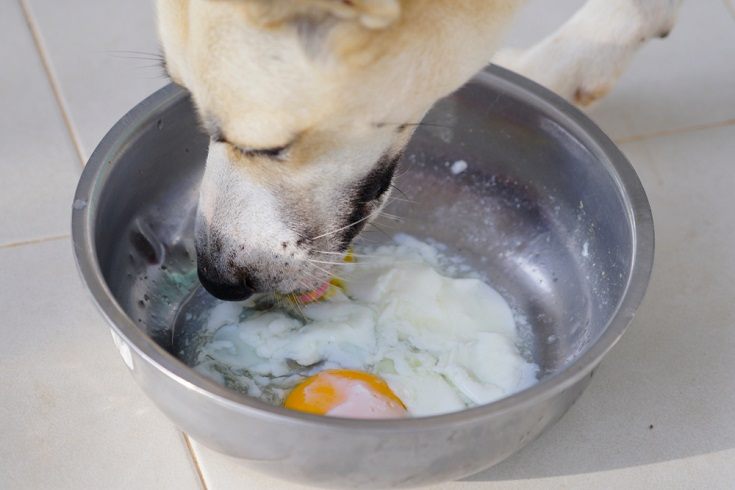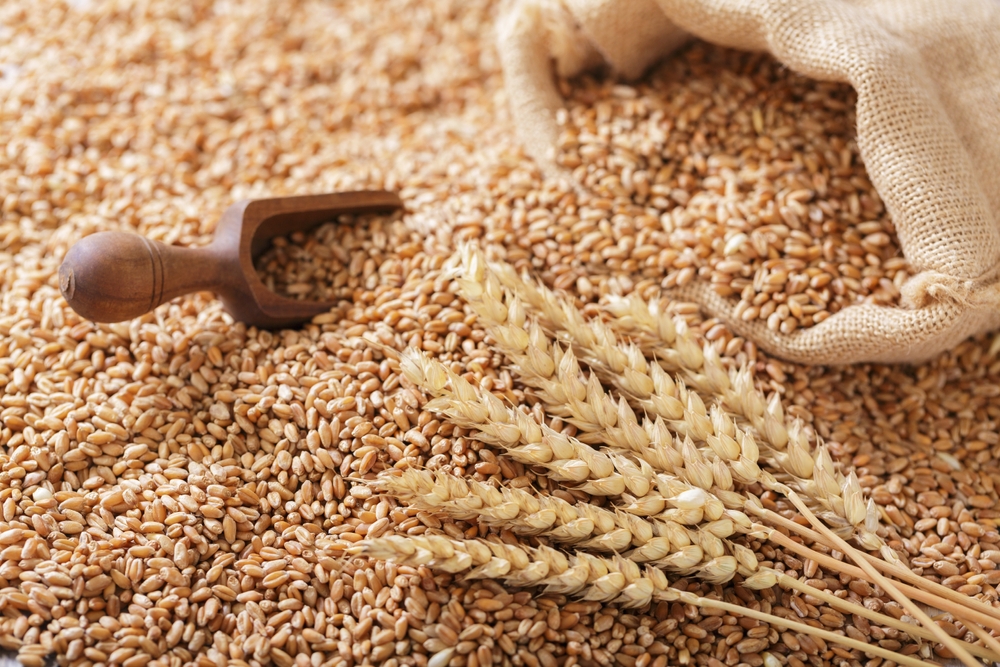Eggs are a nutritious (and tasty) part of most people’s breakfasts, so you might wonder if they can be a part of your dog’s diet too. The answer is yes, they can! However, you need to purchase pasteurized in-shell eggs or know how to cook eggs properly for your pup so they don’t get sick from them.
But what sorts of egg dishes can you whip up for your pet? Here are a few recipes, along with everything else that you need to know about cooking eggs for your dog, all in one handy guide!
Can Dogs Eat Raw Eggs?
Before you begin, you should be aware that unless you purchase pasteurized in-shell eggs, it is highly advised not to feed your dog raw eggs. They can be dangerous for your pet for a few reasons.1
- A raw egg could have Salmonella, which would then infect your pup.
- Raw eggs contain avidin, which is an enzyme that can lead to biotin deficiencies or malabsorption of vitamin B, resulting in issues with your dog’s skin and coat.
- Expired eggs might contain bacteria that will make your dog sick.
So, the most important thing to know about feeding eggs to your pup is that you should purchase pasteurized in-shell eggs or cook them for safety!
How Much Egg Can My Dog Eat?
While eggs are nutritious and will benefit your dog’s diet, you don’t want to overfeed them to your pet. A large egg only has 70 calories, which isn’t much for most people, but canines require fewer calories, and too many eggs given to a dog (especially a small or medium breed) could negatively bulk up their diet. A good rule of thumb is to treat eggs like treats, so they should only be 10% of their normal caloric intake. So, if you do feed eggs to your dog, give them less regular food to balance things out.

Eggs & Allergies
This won’t be the case for all pups, but some canines can be allergic to eggs. If you have never fed eggs to your dog before, start with a small piece, and check for any allergic reactions before giving them more.
Common signs of food allergies in dogs include digestive disturbances, such as vomit or diarrhea, and itchy skin, paws, or ears. Severe allergic signs due to a specific food, causing an anaphylaxis reaction, include lethargy, swelling, hives, coughing, sneezing, and trouble breathing.
3 Egg Recipes for Dogs
Essentially, when you are cooking eggs for your pet, the method doesn’t matter so much as whether they are cooked thoroughly and plain (so no oils, seasonings, ketchup, etc.). Here are three ways that you can make eggs for your dog.
Scrambled Eggs

Scrambling is the best and easiest method of cooking eggs because you can feed them straight to your pet or mix them in with their regular food. Here’s how to cook eggs in this way.
- Whisk eggs.
- Sprinkle a touch of water in a pan, then pour in the eggs.
- Cook on medium heat.
- As the eggs cook, stir and break them into pieces.
- Once cooked thoroughly, let the eggs cool before giving them to your dog.
Boiled Eggs

Boiled eggs are excellent because you can either break them into pieces to feed to your pet or mash them into your dog’s food. They do require a bit more time to make, though.
- Put eggs into a medium pot, then completely cover them with cold water.
- Bring water to a boil.
- As soon as the water is boiling, turn off the stove.
- Cover the pot, then let eggs sit for 10–12 minutes to fully cook.
- When the eggs are cooked, drain them, and put them in a bowl with ice water for around 14 minutes.
- Peel the eggs and feed them to your dog!
Fried Egg

You can make a fried egg for your pet, though you will have to do it without oil or butter. Here’s how to fry an egg without the bad-for-your-pup stuff.
- Heat a non-stick pan on low to medium heat.
- Crack an egg into the pan.
- Cook the egg for 1–3 minutes until the edges of the egg turn white.
- Cover the pan and turn the heat down a bit.
- Cook until the egg (including the yolk) is cooked through.
Conclusion
Eggs can be excellent (occasional) additions to your dog’s diet, as they’re quite nutritious. However, you need to guarantee that any eggs that you cook for your pup are either pasteurized in-shell or cooked to avoid Salmonella or other bacterial issues. Three great ways to cook eggs for your dog are to scramble them, boil them, or fry them—just keep in mind that you shouldn’t use any seasonings, butter, or oil! Any way that you decide to cook eggs, though, will be a way that your dog will enjoy!
See Also:
Featured Image Credit: akirEVarga, Pixabay











